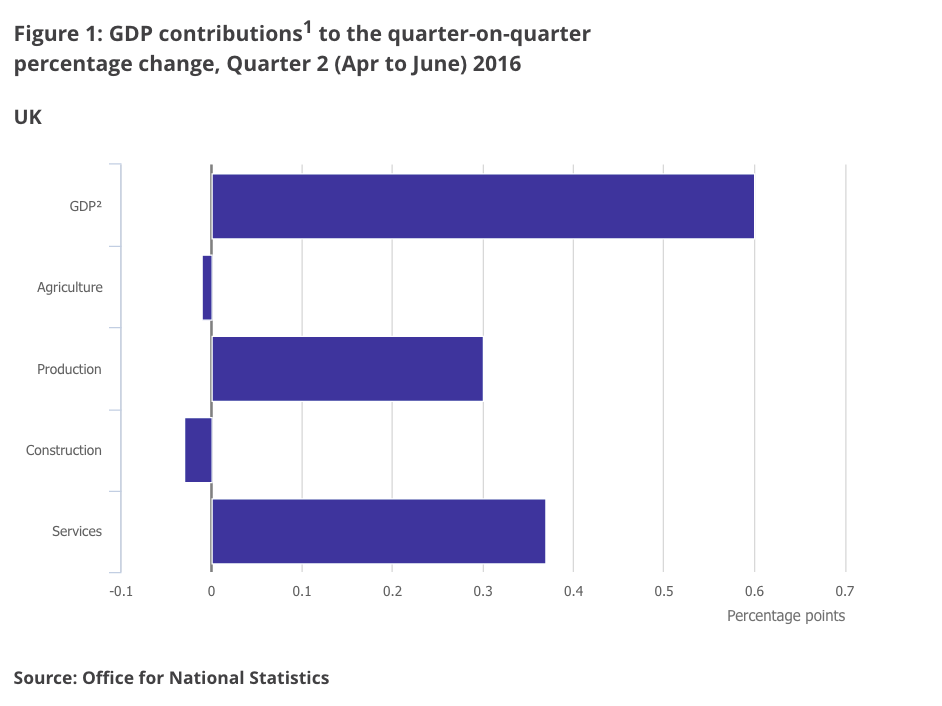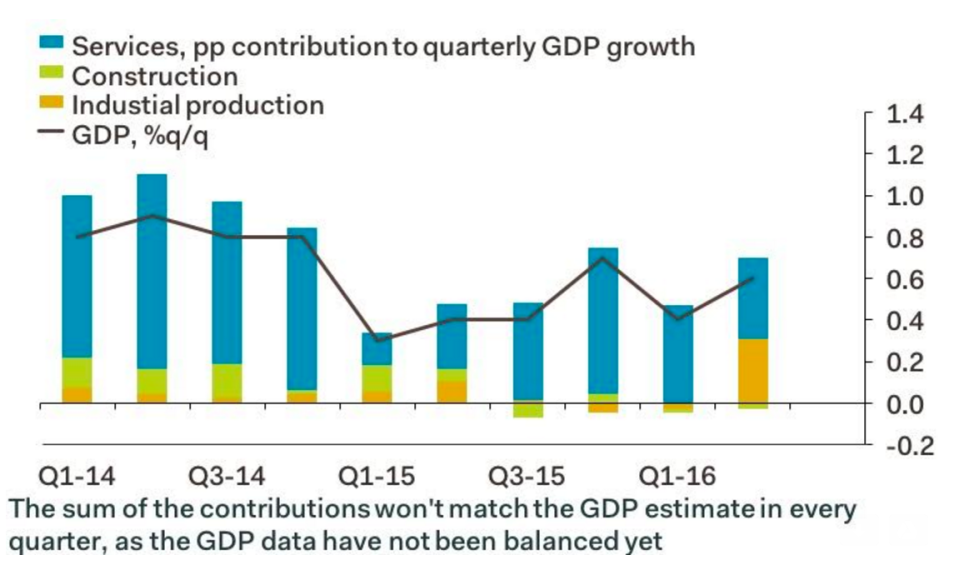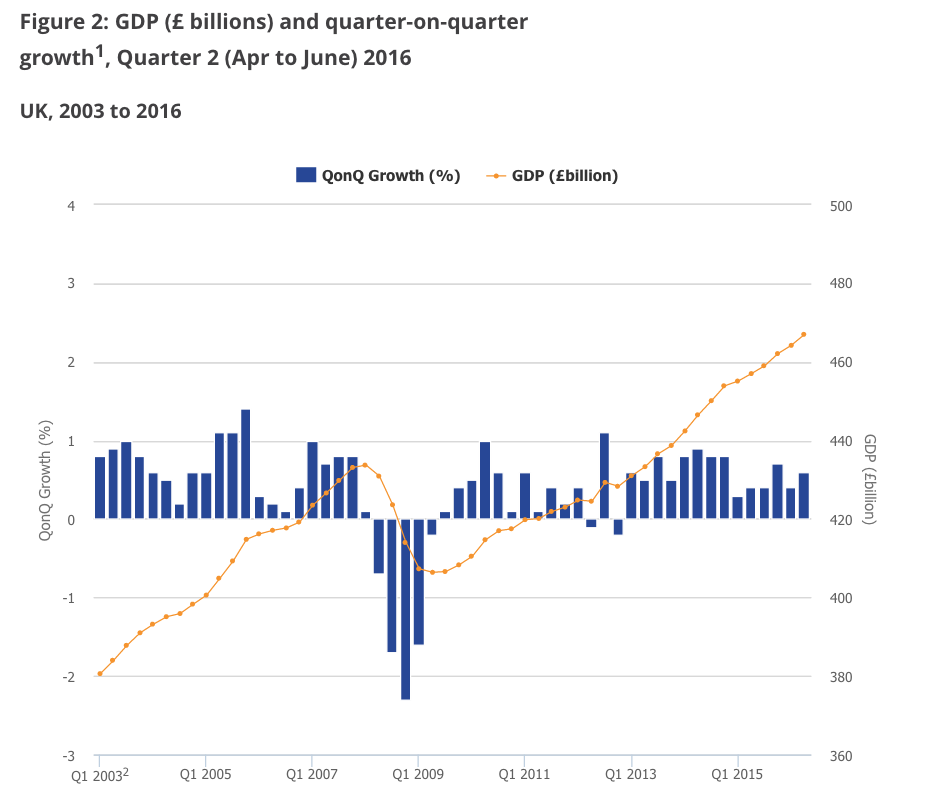BRITAIN BEATS — UK GDP comes in better than expectations

Reuters / Jason Cairnduff
UK GDP grew by 0.6% in the second quarter of 2016, according to figures released by the Office for National Statistics on Wednesday, beating forecast growth of just 0.5%.
On an annual basis, GDP rose by 2.2%, again beating the 2.1% growth predicted.
The numbers released on Wednesday are a preliminary reading produced with roughly 50% of all data collected, so could easily be revised upwards or downwards when the full information is provided, but the numbers suggest that the British economy actually accelerated ahead of the country's European Union referendum in June.
Several pre-referendum indicators suggested that activity in the UK was slowing a little in anticipation of the vote, but the ONS' new figures suggest that this was not the case.
The data will also provide a boost for those who believe that the economic impact of the EU referendum result — a vote for Brexit — might not be quite as substantial as has been widely predicted. Since the result, virtually every economic survey has pointed to a sharp slowdown in the economy, with last Friday's Markit PMIs painting a particularly bleak picture. Many organisations are also predicting a recession, but Wednesday's numbers are encouraging.
The 0.6% growth was driven largely by strong quarterly performances by the production and services sectors, while agriculture and construction provided a small drag on the numbers.

Reuters / Jason CairnduffThis breakdown of growth leads Pantheon Macroeconomics' chief UK economist Samuel Tombs to warn against getting too excited about the data (emphasis ours):
"The second quarter’s GDP figure is not as robust as it seems at face value and it won’t hold back the MPC from cutting interest rates next week. The acceleration between Q1 and Q2 entirely reflected a pick-up in quarter-on-quarter growth in industrial production to 2.1% in Q2 from -0.2% in Q1. Although manufacturing output rose by 1.8%, the strong growth in IP also reflected unsustainable support from a 4.7% surge in energy supply following an unusually mild winter. The rest of the economy slowed. Construction output fell by 0.4%, slightly worse than Q1’s 0.3% drop, and growth in services output slowed to 0.5% in Q2 from 0.6% in Q1."
Here's Pantheon's chart:

Reuters / Jason CairnduffAnd here's how the quarter looks as part of the longer term trend, courtesy of the ONS:

Reuters / Jason CairnduffCommenting on the numbers, newly appointed Chancellor of the Exchequer Philip Hammond said:
"Today’s GDP figures show that the fundamentals of the British economy are strong. In the second quarter of this year, our economy grew by 0.6 per cent – faster than was expected. Indeed we saw the strongest quarterly rise in production for nearly twenty years, so it is clear we enter our negotiations to leave the EU from a position of economic strength.
"Those negotiations will signal the beginning of a period of adjustment, but I am confident we have the tools to manage the challenges ahead, and along with the Bank of England, this government will take whatever action is necessary to support our economy and maintain business and consumer confidence."
NOW WATCH: MALCOLM GLADWELL: ‘Anyone who gives a single dollar to Princeton has completely lost their mind'
See Also:
Here's what you need to know about Michel Barnier, the EU's Brexit negotiator
Another post-Brexit economic survey shows a collapse in activity — this time in retail
SEE ALSO: Britain's first post-Brexit economic data might not be as disastrous as first feared

 Yahoo Finance
Yahoo Finance 
